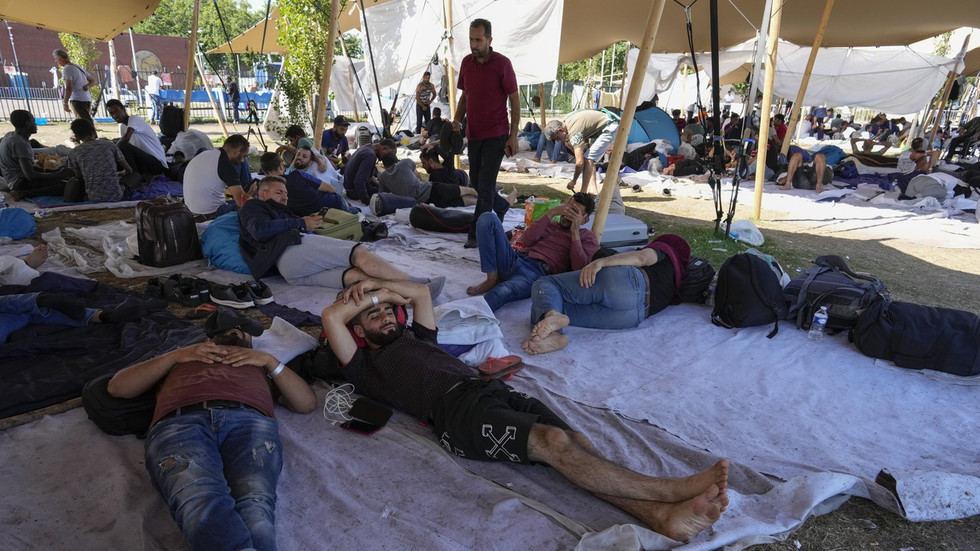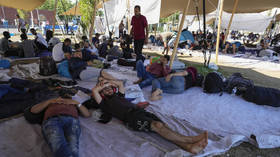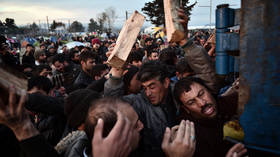
The tenuous ruling coalition could not agree on how to handle asylum-seekers and refugees

FILE PHOTO: Migrants seek shelter outside an overcrowded asylum seekers center in Ter Apel, northern Netherlands, August 25, 2022 © AP / Peter Dejong
Prime Minister Mark Rutte of the Netherlands submitted his resignation to the king on Friday, after the four-party ruling coalition could not reach common ground on migrant policy. The caretaker cabinet will hold office until a new general election.
“Migration is a major political and social issue,” Rutte told reporters in The Hague on Friday evening. “Now that we have been unable to find agreement on this, we have collectively assessed that the political support under the coalition has disappeared.”
The four coalition members have “very different views on migration policy,” he added. “And today, unfortunately, we have to draw the conclusion that those differences are irreconcilable.”
King Willem-Alexander has been notified of the government’s resignation. Rutte will stay on as the caretaker PM until a new general election, which will probably happen in November.
The main bone of contention at Friday’s coalition meeting was the proposal to limit the number of refugees and asylum-seekers in the country of 18 million that is already facing a housing shortage. Rutte’s People’s Party for Freedom and Democracy (VVD) and the Christian Democrats wanted to limit the number of relatives who could follow asylum-seekers already in the country at 200 per year, and create a separate category for war refugees and those fleeing political persecution. The other two partners, D66 and the Christian Union, opposed “breaking up families.”

The Netherlands received 46,000 asylum applications in 2022, with the government projecting it might see as many as 70,000 this year, more than the previous high recorded in 2015. The country has also taken in about 95,000 Ukrainians under “temporary protection” until March 2025.
Rutte has been prime minister since October 2010, as part of four different ruling coalitions. The most recent one was put together in January 2022, after the longest negotiations in Dutch political history. The four-party bloc ended up with just 77 seats in the 150-member parliament.
“Quick elections now,” Geert Wilders, leader of the Freedom Party, tweeted after Rutte’s announcement. The Green Left leader Jesse Klaver also called for a new parliament, telling the public broadcaster NOS that the country “needs a change of direction.”




